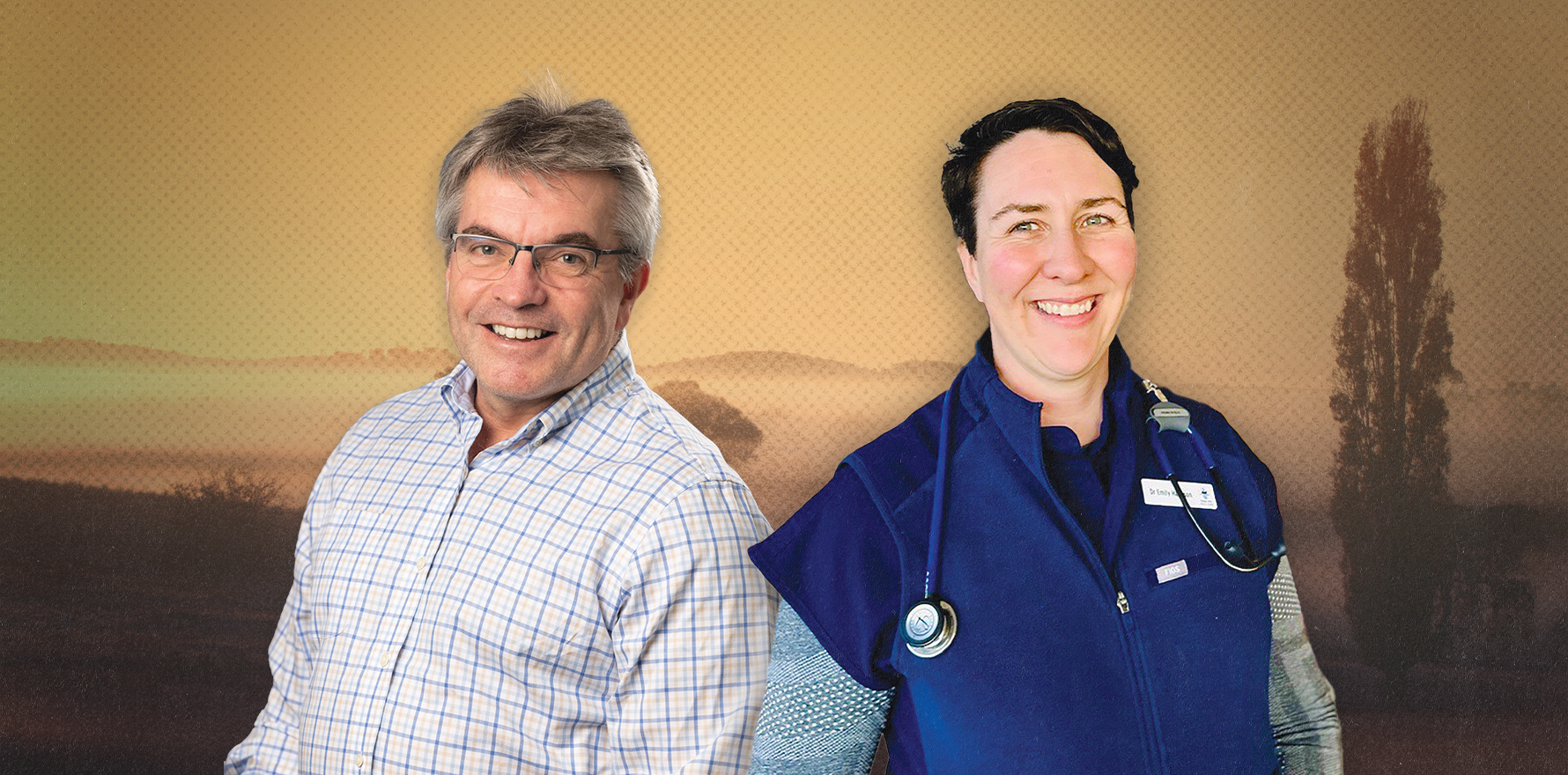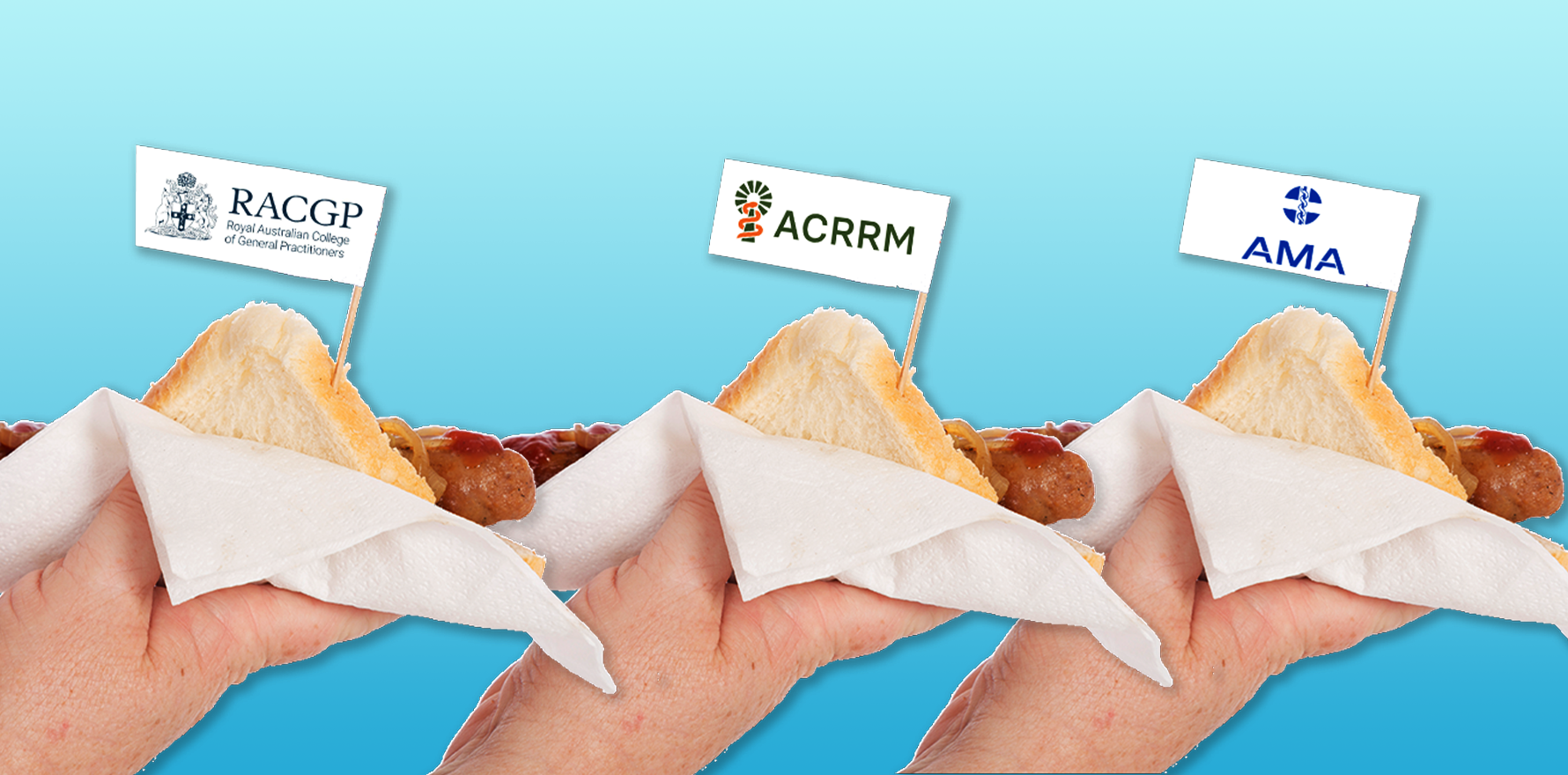Dr Emily Harrison and Dr Rod Martin have both put their hats in the proverbial ring for top banana at the rural GP college.
GPs and rural generalists belonging to ACRRM will head to the polls to select a new president in just over one week, in what will be the college’s second-ever presidential election.
As required by ACRRM’s constitution, both nominees are already members of the college council.
The presidential candidates are Dr Emily Harrison, the council’s Rural Doctors Association of Australia representative, and Dr Rod Martin, who represents NSW.
It’s only the second time in the 27-year history of the college that the presidency has been contested; the first was in 2018, from which Dr Ewen McPhee emerged victorious.
Voting will open on Monday 5 August and close on Monday 26 August.
Outgoing ACRRM president Dr Dan Halliday will hand over the baton at the joint ACRRM-RDAA conference in Darwin this October.
Dr Emily Harrison
A second-generation rural generalist, Dr Harrison has been living and working in the regional Victorian town of Swan Hill since 2020, when she was sent there for what was meant to be a six-week stint.
She put her hand up for the ACRRM presidency at the encouragement of her friends and colleagues within the college.
“At first I was a bit nervous [and thought maybe] I was too young or didn’t have enough experience,” she told The Medical Republic.
“But then I reflected on why I chose generalism and why I work in rural communities – and an opportunity to have a voice and to advocate for my college and my colleagues and my community was one I couldn’t turn up.”
Dr Harrison’s big passion is doctor wellbeing.
She hopes that, with a bigger platform to discuss burnout and toxic cultures within medicine, it might even go some way toward fixing the rural workforce crisis.
“To compensate for not having a full roster, people are working more and burning themselves out,” Dr Harrison said.
“It’s about [stopping] people from leaving our communities, not just trying to attract them.
“I think that’s why I have such a passion for wellbeing, because we need to really, really be looking after those working already so that we can then entice more people to come to [rural and remote Australia].”
On a practical level, she said, taking better care of doctors would involve creating a culture where diversity was welcomed and there wasn’t so much shame around errors or mistakes.
As for the other big threat facing general practice– scope of practice expansion – Dr Harrison said she was keen to ensure that the rural context was taken in account by decision makers.
“I think that, for rural communities to have access to really good care, we need to make sure that they’ve got a diverse range of clinicians that can help support them in those roles,” she said.
“And that … [may mean] having a scope that’s different to what they might have in the city … because that’s who’s in town to do the job.
“When you don’t have many people in town to do different jobs, then we all need to be diverse and expand our scope and our comfort level.”
In her spare time, Dr Harrison is a keen crafter and is kept on her toes by her five-month-old golden retriever puppy. Her go-to karaoke song is Gloria Gaynor’s ‘I Will Survive’.
Related
Dr Rod Martin
A city boy by birth but a country boy at heart, Dr Martin swapped Brisbane for St George the minute he finished his intern year.
For the past 17 years, he’s been living and working in the regional town of Armidale, near the NSW-Queensland border.
Now, with grown children and a “pretty good helicopter view” of the training pathway, Dr Martin is keen to lead ACRRM into the future.
“[My home district of] Hunter New England is almost accidentally run by rural generalists, because a lot of specialists are no longer in town or they’re no longer in the district,” he told TMR.
“We can have most of a week covered by rural generalist anaesthesia, and I think we’re in that prime position now to be able to integrate proper training pathways in both primary care and hospital-based skills training in the places where it needs to be delivered.”
Making sure that training pathways are available outside of cities, Dr Martin said, would be a key objective if he were to be elected.
His vision for ACRRM is that of a concierge that can help guide future rural doctors toward a path in rural generalism or GP.
“[I imagine] someone holding your hand taking and leading you through all the stuff that’s going to make the most sense for you when you are getting ready for exams or when you fellow,” Dr Martin said.
It’s also time, he said, for the state and territory governments to put the money where their mouths are and appoint more specialist rural generalists on the same footing as specialist doctors in metropolitan and coastal hospitals.
Dr Martin told TMR he would also take a stand against role substitution in rural primary care.
“The places where things get tested is where a government can make an argument that there’s not enough of the [qualified] people who are supposed to be there,” he said.
“And once you start role substituting, it’s a pretty hard thing to stop.”
Part of his strategy here will be promoting rural generalists as a necessity to safeguard rural populations.
When he’s not doctoring, Dr Martin is an enthusiastic ice swimmer. He has sworn off karaoke for life.





